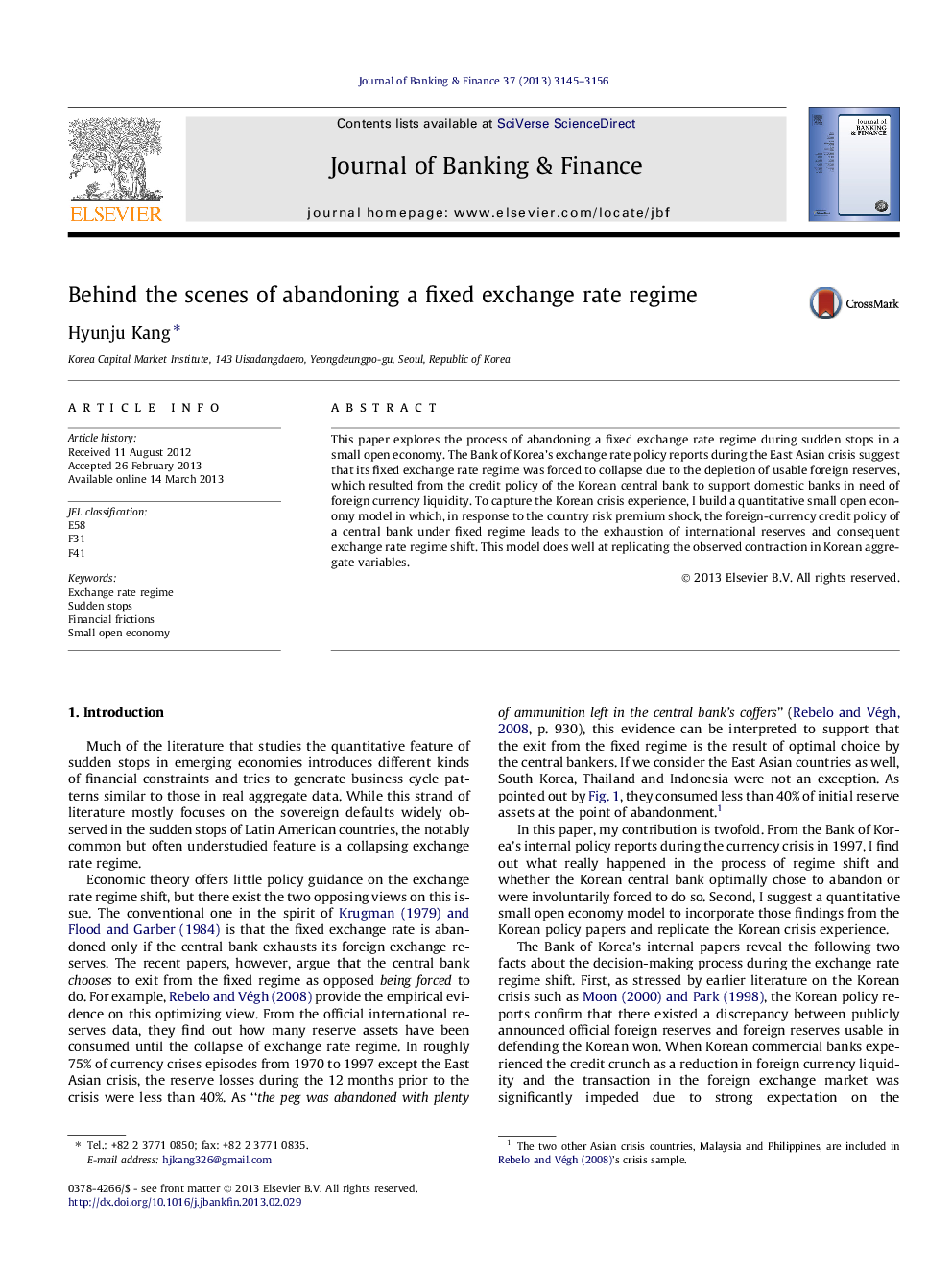| Article ID | Journal | Published Year | Pages | File Type |
|---|---|---|---|---|
| 5089302 | Journal of Banking & Finance | 2013 | 12 Pages |
Abstract
This paper explores the process of abandoning a fixed exchange rate regime during sudden stops in a small open economy. The Bank of Korea's exchange rate policy reports during the East Asian crisis suggest that its fixed exchange rate regime was forced to collapse due to the depletion of usable foreign reserves, which resulted from the credit policy of the Korean central bank to support domestic banks in need of foreign currency liquidity. To capture the Korean crisis experience, I build a quantitative small open economy model in which, in response to the country risk premium shock, the foreign-currency credit policy of a central bank under fixed regime leads to the exhaustion of international reserves and consequent exchange rate regime shift. This model does well at replicating the observed contraction in Korean aggregate variables.
Related Topics
Social Sciences and Humanities
Economics, Econometrics and Finance
Economics and Econometrics
Authors
Hyunju Kang,
